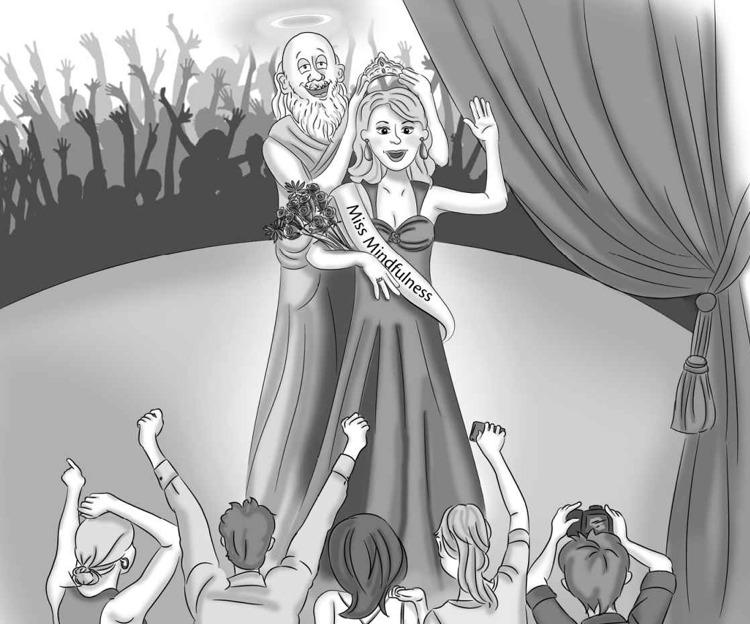
Career Coaching, Change, Professional Development
Are you at a Career Turning Point? Ignore it at your peril.
Lately I’ve been feeling restless, which is usually a sign that something deeper is going on if I take the time to look under the surface. What’s started to emerge upon deeper reflection is that I’m entering a new cycle of change as it relates to my career. I find this interesting because the way we tend to view career is linear. “I need to figure out what my calling is and then I’ll be happy.” We frame the dilemma as an if, then statement and then are surprised when the old formula no longer works. Things start to feel stale, but we’re not sure why. We’re filled with an emptiness, a longing we can’t quite understand. We distract ourselves with more work, social activities, relationships, we find other ways to numb. But the feeling is still there. The answer to this dilemma lies in the fact that we change and grow and evolve. And because we do, we can’t stay in one static place. Any successful career skillfully navigates several turning points. These are sometimes referred to as an existential crisis, or a career crisis, or as we say in the South, a come to Jesus moment. But the bottom line is that transition is normal and we need to learn to lean into it rather than push it away. If you’re wondering what these turning points are once you’ve entered the working world, I can summarize them. Ignore one at your peril, it will find a way of re-emerging louder and more painfully than ever before. The main turning points of working life: Age 30 Assessment (age 28-33) No matter what direction we’ve launched ourselves in post college, we tend to do some reflection and assessment around age 30. What has been working about the course I chose? What hasn’t? What do I want to achieve in the next 10 years? How will I do this? What values do I need to pay attention to? What interests? What are my family goals? How am I balancing work and family? What would be most meaningful to me as this point in my career? What could I add to my life to make it more interesting and meaningful? Midlife Transition (age 38-45) This transition can be one of the most important in a person’s life. And if we ignore it and bury the feelings that often accompany this transition point, it can be a disaster. The proverbial mid-life crisis will often ensue. Divorces are common at this stage. Many people, confronted with the feelings of stress, anxiety and depression that often accompany this stage, choose avoidance. But these feelings don’t really go away, they just go underground. The True self, our soul essence, our spirit – whatever term you chose to use, still needs expression. How do I feel about my family? How do I feel about work? What changes would I like to make to achieve a better balance? How connected do I feel to others? What excites me […]
May 31, 2024
|
4.8 min read

Change, Professional Development
In the pursuit to feel the fear and do it anyway, this is what we forget
I’ve never been a fan of anything that can feel like a box tick or a paper pushing exercise. I recall plenty of such exercises from my time in corporate America, and I’m sure you can also relate. But there are also things that often get treated as such that shouldn’t be — personal development plans are one example that comes to mind. Who has time for these annoying things when there is work that needs to be done? Besides, don’t people learn more quickly and effectively if they just throw themselves in at the deep end and figure it out? Challenge builds resilience after all! Interestingly that used to be my approach to learning and development. When I transitioned my career from risk management to leadership development, I unconsciously and somewhat ironically took that approach. One day I worked in one department and the other day I worked in a completely different part of the organization in a totally new role, with no thought to what competencies I was strong and weak in, what I may have been lacking, who I could turn to for help, what resources were there to support me. I had initiative and passion and that was enough, right? It had gotten me through the interview and that was good enough as far as I was concerned. Off I rode on my white horse to save the day on a passionate high, totally blind to what lay before me. Six months in I literally wanted to jump off a cliff. Every day I considered resigning. Nothing I produced seemed to be good enough. I knew I was missing the mark, but I wasn’t sure why. I was running completely in a reactive state and a place of fear, almost paranoia. I felt like I couldn’t trust anyone or anything. My relationship with my boss and coworkers became strained as I buckled under the stress. I had always prided myself on being a high performer. And high performers can perform regardless of the context, right? Otherwise, they’re not high performers. The judgment from my boss (which trust me was substantial) was nothing compared to the internal shame and judgment I put on myself day after day. Looking back, it’s fair to say it was the most painful chapter of my life to date. A Personal Development Plan supports sustainable growth, not growth at all costs… All this to say, “winging it” is not the best strategy if you really want to learn and grow in a sustainable way. While I did learn a lot and grow a lot from that experience, it came with a huge cost. I spent quite a bit of time working to build back my self-confidence and sense of self-worth from that experience. And that took years, not months by the way. But this kind of thing can be deceptive, especially when we’re bombarded with messages that you need to “feel the fear and do it anyway,” or constantly be setting “Big, […]
April 30, 2024
|
6 min read
Professional Development
Shelley Pernot, otherwise known as the Irreverent Guru of Mindfulness, muses on life, leadership and everything in between. Your one stop shop for career tips, leadership tips and daily inspiration!

It was a privilege to work with Shelley as my leadership coach! The process was structured and yet flexible enough to meet needs as they arose. Shelley helped me to grow, learn more about myself, and to really achieve what I set out to accomplish. We worked on planning, navigating a promotion successfully, and so much more! I experienced many successes as a result of working with Shelley, she has great resources, knowledge, and really helps with setting the foundation to this coaching work. She won’t let you down!
Stacy Campos
Regional Coordinator
Having the opportunity to have Shelley as my Leadership Coach could not have come at a better time in my career. I was recently promoted to CFO and was new to the Senior Management Team. Shelley helped me navigate joining the team as well as helped me to determine who I wanted to be as a leader. The Leadership Circle Profile helped our team to discover our blinds spots and to be able to understand each other better. Working with Shelley not only has affected my professional life in a positive way, but also my personal life. She helped me take leaps and has given me the resources to continue this journey of self-improvement. If you’re looking to find more about yourself and how you can be the best version of yourself, I highly recommend working with Shelley.
Kristen Spedale
CFO
I have been working with Shelley for the past 2 years on my leadership development journey. What I thought would be a straight line, I soon learned with Shelley’s guidance, was a winding path with several ups and downs along the way. Shelley supported me as I took a deep dive into my professional and personal history and learned how it affects my approach and my perceptions. She helped me to slow down and recognize certain behaviors and understand that I can pivot in the moment or try again next time. Ultimately, my work with Shelley turned out to be so much more than what I expected. Her approach to coaching was exactly what I needed.
Nicole Naassan
Senior Vice President, Consulting
I’ve learned more about leadership in the past six months working with Shelley than I have in my 10+ year career. She is an incredible coach with many tools in her toolbox. The guidance and mentorship I’ve received from Shelley has been life-changing. She will challenge your limiting beliefs and inspire new ways of thinking.
Margaret Soltis
Creative Director
I highly recommend Shelley if you need a coach, thought partner, and guide as you consider the next steps in your career. She provides practical tools and advice to help launch your career exploration, but most importantly, she is an expert at helping you cut through the noise of your limiting beliefs. At the end of our time together, I had a much clearer vision of what I wanted in my life and a plan to make it happen. My only regret is that I didn’t find her sooner!
Elizabeth Magnus
My career coaching sessions with Shelley have brought me back to living. It’s been contagious, spreading throughout my personal and professional life. I now have the building blocks I need to continue setting healthy boundaries, the freedom to show up as my authentic self, and an adaption of a growth mindset that has allowed me to make bold decisions and try new things. I’ve discovered that there’s always another way and how to eradicate barriers that lead to tunnel vision. These sessions with Shelley have been a great gift and have given me the momentum I need to continue the journey to be my best self.
Teasha Houston
Art Director
It is amazing to think where I was only 10 months ago when I first started working with Shelley and where I am now. Not only professionally but mentally and emotionally. Shelley helped me navigate out of an unhealthy work environment by challenging me and asking me those tough questions we never seem to ask ourselves. What are the values of a true leader? How do those values align with my own? Shelley challenging me and guiding me through some of those tough questions is what led to my epiphany and me having the courage and confidence to leave an environment that threatened my well-being. She taught me how to become more self-aware and self-compassionate. Reminded me to be kind even when the world would understand if I did otherwise. And the biggest one for me, shutting down that crazy inner voice (we all have it!) and replacing it with being present. Shelley has armed me with tools that I will carry with me for a lifetime. Tools that will help me to continue to grow and learn. Life can be hard but working with someone like Shelley does make it easier. She will help you navigate the good and the bad and you’ll learn so much about yourself in the process.
Michele Feria
Director of Marketing
First of all I would like to say that I would recommend Shelley to anyone needing career guidance. As my counselor Shelley helped me transition my career from bartending to Tech Sales which was a difficult and scary transition for me. From the start Shelley was fantastic. Initially I had no idea of which direction I wanted my career to go, I just knew I wanted it to go somewhere else. Shelley was so kind and patient as she helped me figure this out, and gave me a step by step guide on how to explore my options and make an educated decision. She also helped me assess my skill set which played a large part in directing my energy. I landed a great job within days of my final session with Shelley, and now I’m month 3 I am absolutely loving it and doing very well. It was the perfect job for me and Shelley was the one that got me there. Working with Shelley was one of the best decisions I have ever made, she literally changed my life and I am so much happier for it.
Russell Boxer
Account Executive
